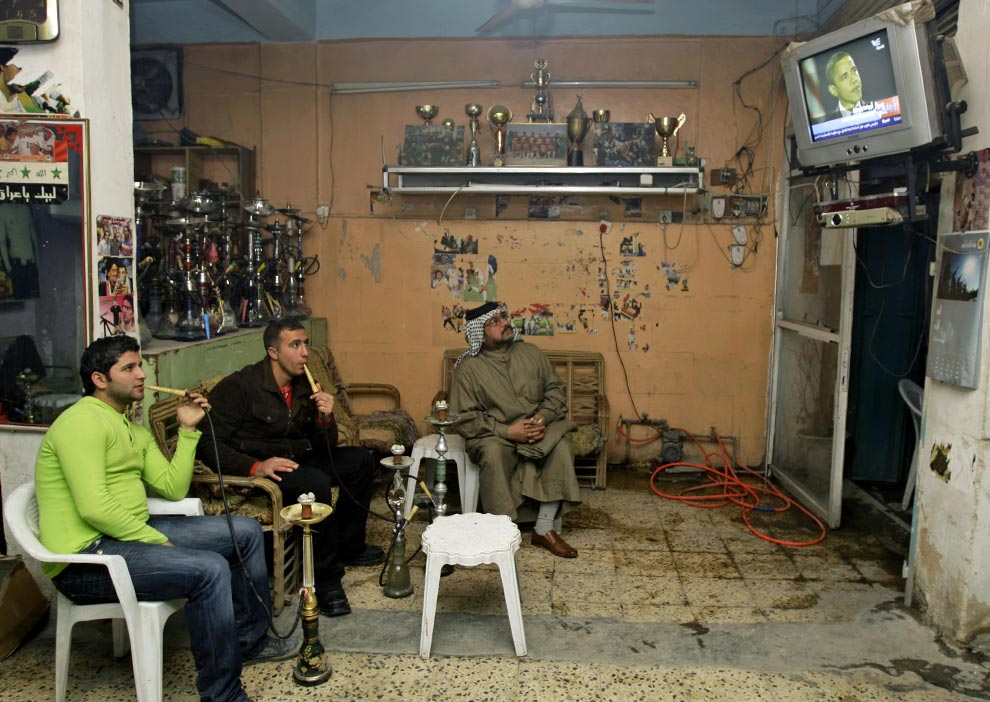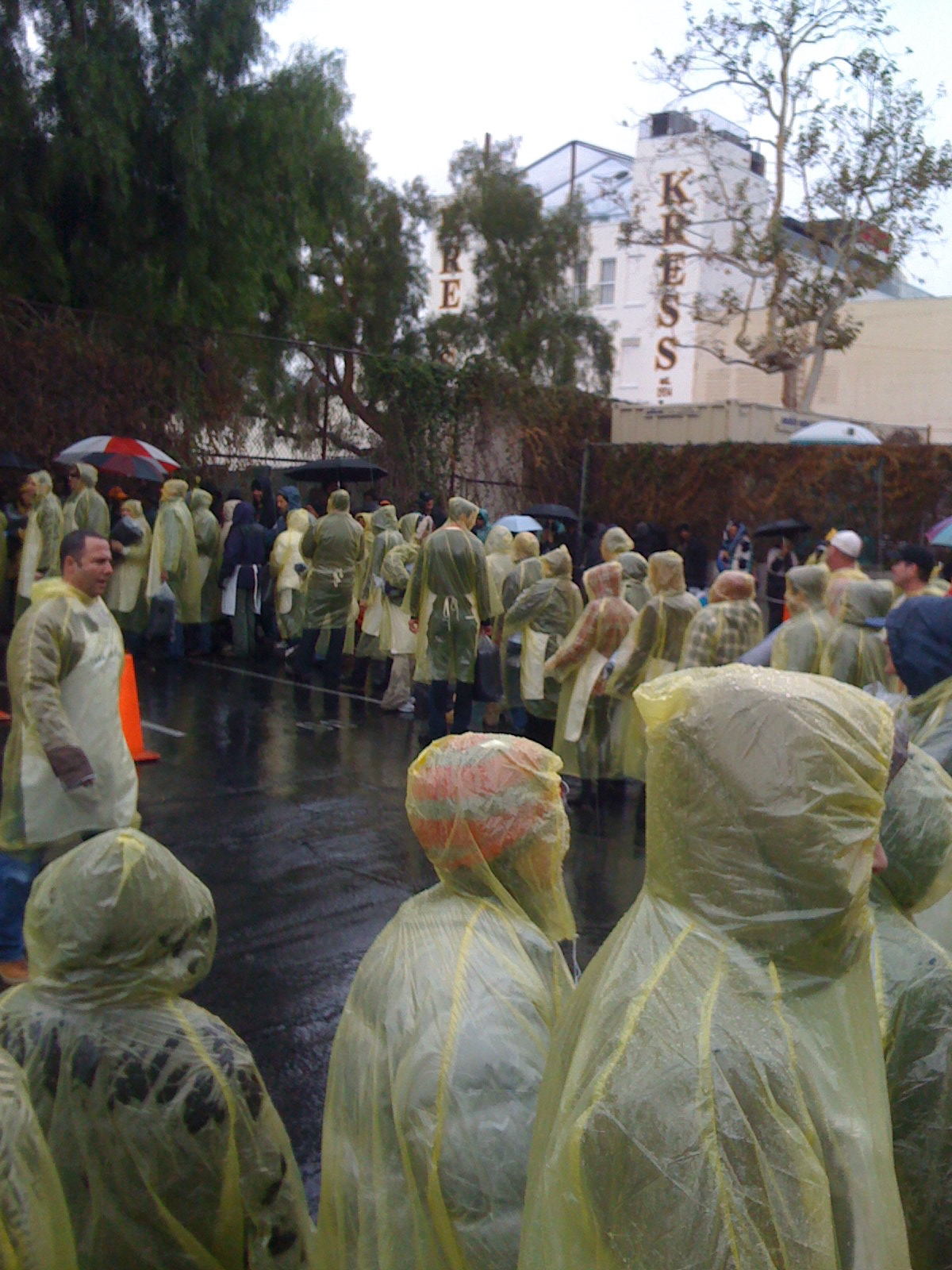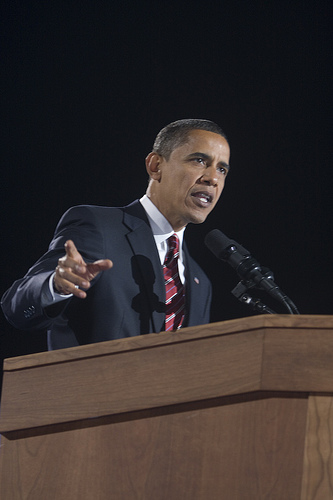Society
If You Had A Billion Dollars…
If you had a billion dollars to make the world a better place, how would you spend it?…
Violence on the Decline
From Monday’s Washington Post:
The District, New York and Los Angeles are on track for fewer killings this year than in any other year in at least four decades. Boston, San Francisco, Minneapolis and other cities are also seeing notable reductions in homicides.
Full article is here, in which more sensible police approaches are given credit for the decline.…
The Diamond Rule
We all know the Golden Rule: do unto others as you would have them do unto you. TED Prize Wish winner, Karen Armstrong, even laudably proposed that a Charter for Compassion based on the observation that all three Abrahamic traditions (Christianity, Judaism and Islam) have the Golden Rule at their core.
I do believe that if we all followed the Golden Rule as the basis for how we treat one another the world would be a better place. But I also think there is a a more fundamental rule, call it the Diamond Rule, which is even better:
Treat others as you believe they would want you to treat them, if they knew everything that you did.
The difference is subtle, and may not practically speaking yield different action that often. But when it does, the difference can be significant.…
Paying Women to Not Get Pregnant
What’s fascinating to me about this is not that it works so well and or that there might actually be support in the Obama administration for doing it on a national scale, but rather that there has not been a backlash against it yet. What are the odds that something like this will actually get implemented? Is it actually a good thing?
hat tip: Annie Duke’s mom…
If Rafe Were In Charge: Major Medical Edition
Kevin started an interesting discussion that included a thoughtful proposal for the problem of major medical care costs risk mitigation. You should read that here before reading my proposal below.
Part 1: Major Medical Annuities. Federally mandated/funded (similar to SSI/Medicare), with a specific initial lifetime value that is the same for everyone. The concept is that you pick a number slightly bigger than the average expected lifetime major medical bill and set aside that pot of money for everyone individually. At some point (e.g. 65) you can choose to start drawing down from your pot as taxable income. Prior to then, the only way the fund can be used is for major medical expenses not covered by other insurance you may have. Such payments go directly to providers and are tax-exempt. When you die, any leftover amount gets transferred to the MMA accounts of your heirs (per your desired breakdown, or according to probate law in the absence of a will).…
Leveraging Taxes for Civil Engagement
Dan Ariely had an interesting idea on NPR’s Marketplace today. Here’s the audio of the segment. The idea is to get tax payers thinking about how their tax dollars should be spent, thus getting them more civilly engaged. His research and that of others suggests that such activity would reduce the propensity to cheat on one’s taxes, and may even get people to pay more than they would otherwise.…
Is the Party Over?
I don’t like the Republican or Libertarian parties. But I’m also no fan of the Democratic party. In fact, I dislike all political parties and think they should be done away with. And while I’m not naive enough to think that this will happen, it makes me glad to see that the “post partisan” utopia is closer today than it was a year ago.…
Another Must Read on the Origins of the Crisis
Steven Gjerstad and Vernon Smith have published a really nice article that starts out with bubbles in general and goes on to explain why the bursting of this particular bubble hurt the economy so much. It echoes a lot of themes that I’ve covered before, but is obviously much more soundly though out.
The short version is that the effect of a bubble on the economy is determined by its effect on consumer spending. The Dot Com Bubble didn’t have much of an effect because it primarily affected institutions and already relatively wealthy consumers. However, the Fed’s attempt to shorten the resulting recession created a loose monetary policy which forced dollars into the most attractive asset class: homes. This attractiveness stemmed from relaxed lending standards and tax-free capital gains on homes, which created more buyers. But asset appreciation in this class is fundamentally limited by the ability of consumers to repay loans from income, which was not growing fast enough. As the institutions insuring mortgages …
Tribes
Tribes are hot.
Kevin has referred more than once to the famous Dunbar number for limits on optimal human tribe size.
One of my favorite books recently is Seth Godin’s book on leadership, called — you guessed it — Tribes.
Yesterday I heard a great talk by David Logan, co-author of Tribal Leadership.…
Why It's Important to be an Optimist
The optimist proclaims that we live in the best of all possible worlds; and the pessimist fears this is true. (James Branch Cabell)
I am currently reading What Are You Optimistic About?, a collection of short essays by thought leaders in many different disciplines on the eponymous subject. I’m also reading True Enough, a compelling argument by Farhad Manjoo for how despite — nay, because of — the fire hose of information that permeates modern society and is available for the asking, the schism between what’s true and what we believe is widening; a polemic on polemics if you will. Taken together, these two books suggest to me that there is a case, not for being optimistic per se, but for why you should consciously, actively try hard to become an optimist if you aren’t already.…
Should We Hold the Bush Administration Accountable?
Paul Phillips’s blog entry quoting Greenwald on Bill Moyers sums up it up pretty well. And I’ve wondered what the Obama administration is going to do about this and what they should do. The arguments for not pursuing the Bush administration’s crimes are good ones. We have such big fish to fry with the economy, climate and wars that it would be a huge distraction right now. And secondarily, it would come off as divisiveness in a time when we need it least, not to mention that it was one of Obama’s main campaign promises change the culture of partisan politics that has plagued us for so long.…
Obama's Must Do List
Everybody has their wishlist and “must do” lists for the new President. Back in March of 2007, the NY Times published this Op Ed piece that I personally believe is critical and outlines what needs to be done above all else. The article goes into much more detail about specifics, but the overall thrust is threefold:
- Restore Habeas Corpus
- Stop Illegal Spying
- Ban Torture, Really
I’m curious to know though, what do you think the priorities should be for Obama’s presidency?…
Two Paths to Empathy
By all accounts, the ability to empathize with others is the hallmark of social behavior. Indeed, when we come across those rare individuals whom we view as anti-social, or those even more rare individuals that we label as sociopaths, the diminished or missing feature of their personality is empathy.
There are two paths to empathetic behavior, one innate, and one constructed. …
The Socioeconomics of Cancer
Pop Quiz: Which is a bigger determinant of cancer mortality in America, being poor or being black?
According to Dr. Harold Freeman of the National Cancer Institute, poverty is the bigger factor today, but it hasn’t always been so:
…Global Warming
A few months ago a friend of mine engaged me in a discussion about the controversy surrounding global warming. If you are surprised to hear that there is still controversy, read on; I was equally surprised.…



Response to "Thoughts on Ants, Altruism and the Future of Humanity"
[ This is an edited version of a blog comment on Brandon Kein’s Wired Science post here ]
The question of whether we will “break through” to a superorganism or collapse through any number of spiraling cascades or catastrophic events is the subject of Ervin Laszlo’s book, The Chaos Point, which I highly recommend. In it, he gives a sweeping view of the complex evolutionary dynamic (focusing on human society), and makes a solid argument that we are at an inflection point in history right now, similar to the “saltation” that begat multicellularity.…
Blog Comment, Cooperation, Culture, Emergence, Levels, Singularity, Society Blog Comment, Cooperation, Culture, Emergence, Levels, Singularity, Society, 2